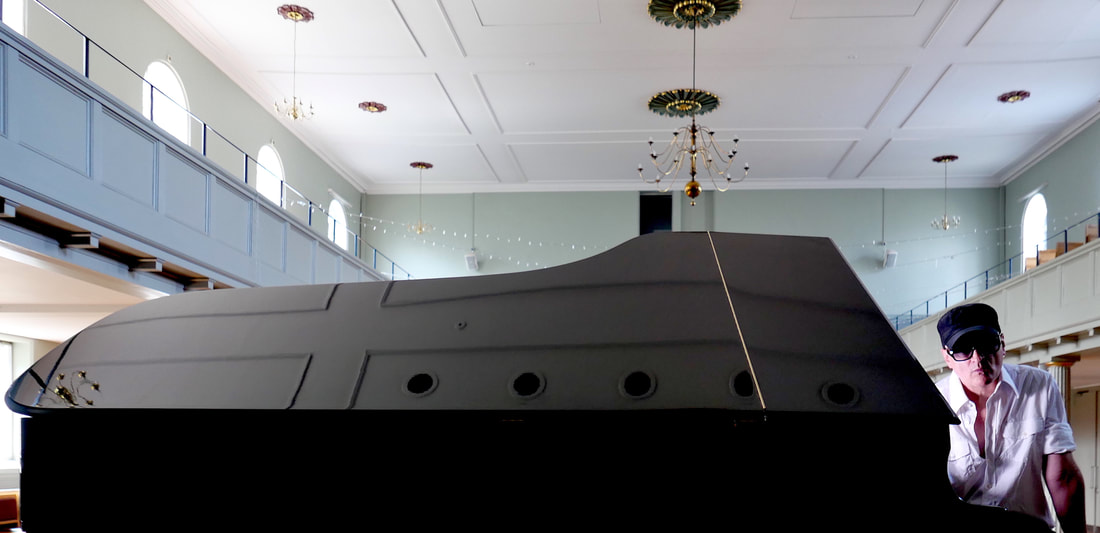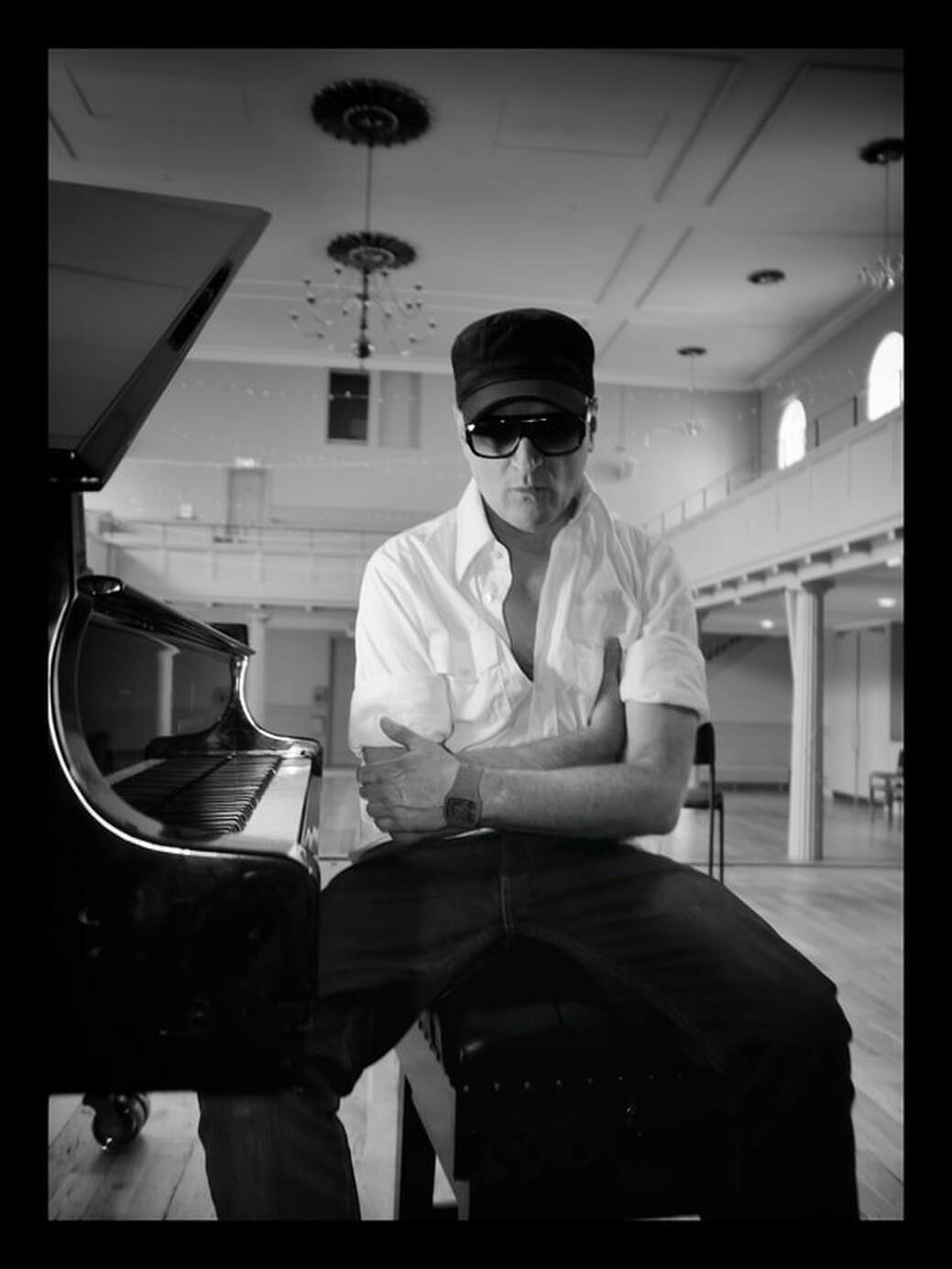JIMMY GALVIN
ALBUM RELEASE/INTERVIEW
Bristol, 26 April 2020
Photo Credit - Martin Hartley
Just when we're getting to love Anni Hogan's gorgeous Album of Piano compositions we get another one, it's too good! Melissa Chemam spoke to Jimmy Galvin about his Music, his new album 'Spiritual Data' and much more galore...! Best pp
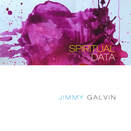
Hello Jimmy, SPIRITUAL DATA is your latest release, consisting of 14 sublime solo piano pieces, all composed and played by you. With the current crisis, did you ponder on if and how to release music during a lockdown?
Hi Melissa. For me personally it was even more important to put something beautiful out there during these strange times where many people will struggle with the imposed isolation. These are the times when we need art and music more than ever, as it’s experienced outside of the usual passive consumer experience; you have time to make the exact choices you want, which is rare. Music activates those secret places we don’t often wish to go to in ourselves, so for me right now it’s all about the frequencies and spiritual catharsis.
What were the inspirations that led you to create these pieces? When did the creative process start?
I live and work in Bristol; I can see the countryside from my window. For me these days its all about space. I have grown up and walked these city streets for many years so there’s a narrative there like music as a memory palace experience. Living in Bristol informs all of my art and music. People from anywhere in the world could walk the Bristol streets listening to my music and I am sure they would connect to what it’s expressing. I started composing this album about 3 years ago from many fragments of ideas I had that ended up being worked on to final compositions.
Hi Melissa. For me personally it was even more important to put something beautiful out there during these strange times where many people will struggle with the imposed isolation. These are the times when we need art and music more than ever, as it’s experienced outside of the usual passive consumer experience; you have time to make the exact choices you want, which is rare. Music activates those secret places we don’t often wish to go to in ourselves, so for me right now it’s all about the frequencies and spiritual catharsis.
What were the inspirations that led you to create these pieces? When did the creative process start?
I live and work in Bristol; I can see the countryside from my window. For me these days its all about space. I have grown up and walked these city streets for many years so there’s a narrative there like music as a memory palace experience. Living in Bristol informs all of my art and music. People from anywhere in the world could walk the Bristol streets listening to my music and I am sure they would connect to what it’s expressing. I started composing this album about 3 years ago from many fragments of ideas I had that ended up being worked on to final compositions.
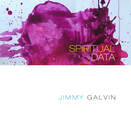
Jimmy, when did you start learning music?
I’m an autodidact, totally self-taught with any form of expression. It’s about having something to say and if you’re lucky enough to have that then instinct will take over and creativity will unfold.
As a self-taught musician and painter, who did introduce you to art and music? Did you ever have a mentor?
It found me. Art was always there. I grew up in an environment where there were no books. I have never questioned it. The art was there from day 1, although I never think of myself as an artist. I don’t relate to 99% of artists. I am always being asked: “What’s your practice?” My response is always “To be a better, more useful, compassionate human being”.
Samuel Beckett said that all art is trying to fill a void inside us so I am no exception to that really, in fact I’m a cliché. There was never one mentor. I just started reading books when I got to age 20 and searched out the best, like Francis Bacon, Rothko, Kazuo Shiraga, Erik Satie, Bach, Glen Gould, Stravinsky, all the masters. Then it’s just a question of looking and listening and being humble. The great composer Schoenberg once said that “Genius can only ever learn from itself”.
When in my early 20s, I was taken to meet some bohemians who lived in Hotwells, here in Bristol, it was a hot summer night and they played an album by Erik Satie, and it changed my life there and then. I thought I have got to understand and learn to create music with this absolute honesty and purity and that’s why I compose mainly solo piano music. There is nothing to hide behind. You have something beautiful to say or you don’t; you can’t fake what the end result is. And I love that vulnerability. Technology has made it so easy for people now to make music, but 99% is total bollocks and 100% fake. It’s polluting the airwaves no wonder mental health is such an issue these days.
Did you feel getting into the world of producing music professionally was extremely challenging?
No, it never even occurred to me. I like a quote from Dennis Hooper who said that: “If you took the money out of art, 99% of the fakes would crawl back to their shit fucking lives as accountants and leave the 1% to carry on until they die.” So much art and music is made to make money; it sucks. It’s such big business now that the art has almost gone out of it so it attracts those kinds of people and that holds no interest for me whatsoever.
What did you learn from your first years?
To not be a cunt…
You were often compared to Erik Satie, Glen Gould, Ryuichi Sakamoto and even J.S Bach, how did your music evolve over the years?
Tenacity to go on absorbing the greatness of all of those incredible people. It’s all about being humble, to stay open and carry on learning, looking unto yourself, and continue that most difficult of conversations, the internal dialogue of self, to understand the true nature of kindness and what it is and can be to be human.
What sort of music do you like to listen to?
I’m a music addict. It’s like a science hearing what someone has created using the same few octaves that we all draw from fascinates me. These days I listen to Bach more than anyone, especially the Glen Gould and Andreas Schiff interpretations. I love early Van Morrison, 1970s soul Marvin Gaye, Sly and the Family Stone, that music was so informed with the genius input of people like David Van dePitte who arranged the strings for Marvin Gaye on ‘What’s Going On’, one of the greatest albums ever made! It message is even more relevant now. And also people like Thom Bell, the Jamaican-born American arranger who was classically trained, but being black, could not get work in the classical world so ended up going into pop music. He’s one of the main creators of the Philadelphia sound. This music had a massive impact on me; it was so musical and ambitious; it transcended you to a higher place like all great art does. For me, ‘What’s Going On’ is coming from the same place as Bach that need to reach higher to take you somewhere else.
And you’re a visual artist as well, and an art curator. You completed a one-year foundation course at Bath Academy of Art in the late 1980s, what did you learn from this experience?
That was a happy time as the art college was made up of three huge Bath townhouses knocked into one; there were some great teachers there, who just allowed me to paint in these huge beautiful sunlight rooms; really enjoyed the whole experience.
Your work has been exhibited alongside leading artists like Damien Hirst, Howard Hodgkin, Julian Opie, Antony Gormley, Gillian Ayres, Marc Quinn, Jake and Dinos Chapman, Gavin Turk, Sir Peter Blake and Mark Wallinger. Do you relate to their work or do you still feel like an outsider?
That was all good as most of those exhibitions were for great charities, doing great work, so it’s an honour to be part of anything like that, where you can make a useful contribution to someone else’s life.
In Bristol, recently, you even brought Yoko Ono to exhibit some of her video and photo artwork (‘INTERVENTIONS/2’, at The Georgian House part of Bristol Museum), how did that come about?
I had first made contact with Yoko Ono’s team in 2011 when I was trying to curate a huge modern pop art show at The Royal West of England Academy here in Bristol for a show I planned called TREMOR. It was to feature Yoko Ono, Brian Eno, Bryan Ferry, “3D”, Jamie Reid (Sex Pistols) and many more leading artists… Sadly, due to some mismanagement of funding the show could not go ahead. Then I saw a Yoko Ono show in Vienna and thought this will work in The Georgian House in Bristol so I contacted her people again then she said yes so that’s how it all happened. And I wanted to use the Georgian House specifically due to its past, being owned by the Pinney family who were very active in the transatlantic slave trade, to reclaim that space and create a platform for a difficult conversation that Bristol doesn’t like to have with itself very often. It proved a huge success with a great outreach programme, many thousands of visitors. I hope to repeat it in 2021 with another artist.
You were described as being always working, which comes across strongly when following all of your productions. Do you also like to collaborate with other artists?
Not really, no. There is a reason why there is only ever one director on a film and one author for any book. I always have a strong vision from the start and that’s why I love composing solo piano music. I don’t need to rely on anyone else; it all starts and stops with me, and I like that it’s about owning what you create with no compromises.
I’m an autodidact, totally self-taught with any form of expression. It’s about having something to say and if you’re lucky enough to have that then instinct will take over and creativity will unfold.
As a self-taught musician and painter, who did introduce you to art and music? Did you ever have a mentor?
It found me. Art was always there. I grew up in an environment where there were no books. I have never questioned it. The art was there from day 1, although I never think of myself as an artist. I don’t relate to 99% of artists. I am always being asked: “What’s your practice?” My response is always “To be a better, more useful, compassionate human being”.
Samuel Beckett said that all art is trying to fill a void inside us so I am no exception to that really, in fact I’m a cliché. There was never one mentor. I just started reading books when I got to age 20 and searched out the best, like Francis Bacon, Rothko, Kazuo Shiraga, Erik Satie, Bach, Glen Gould, Stravinsky, all the masters. Then it’s just a question of looking and listening and being humble. The great composer Schoenberg once said that “Genius can only ever learn from itself”.
When in my early 20s, I was taken to meet some bohemians who lived in Hotwells, here in Bristol, it was a hot summer night and they played an album by Erik Satie, and it changed my life there and then. I thought I have got to understand and learn to create music with this absolute honesty and purity and that’s why I compose mainly solo piano music. There is nothing to hide behind. You have something beautiful to say or you don’t; you can’t fake what the end result is. And I love that vulnerability. Technology has made it so easy for people now to make music, but 99% is total bollocks and 100% fake. It’s polluting the airwaves no wonder mental health is such an issue these days.
Did you feel getting into the world of producing music professionally was extremely challenging?
No, it never even occurred to me. I like a quote from Dennis Hooper who said that: “If you took the money out of art, 99% of the fakes would crawl back to their shit fucking lives as accountants and leave the 1% to carry on until they die.” So much art and music is made to make money; it sucks. It’s such big business now that the art has almost gone out of it so it attracts those kinds of people and that holds no interest for me whatsoever.
What did you learn from your first years?
To not be a cunt…
You were often compared to Erik Satie, Glen Gould, Ryuichi Sakamoto and even J.S Bach, how did your music evolve over the years?
Tenacity to go on absorbing the greatness of all of those incredible people. It’s all about being humble, to stay open and carry on learning, looking unto yourself, and continue that most difficult of conversations, the internal dialogue of self, to understand the true nature of kindness and what it is and can be to be human.
What sort of music do you like to listen to?
I’m a music addict. It’s like a science hearing what someone has created using the same few octaves that we all draw from fascinates me. These days I listen to Bach more than anyone, especially the Glen Gould and Andreas Schiff interpretations. I love early Van Morrison, 1970s soul Marvin Gaye, Sly and the Family Stone, that music was so informed with the genius input of people like David Van dePitte who arranged the strings for Marvin Gaye on ‘What’s Going On’, one of the greatest albums ever made! It message is even more relevant now. And also people like Thom Bell, the Jamaican-born American arranger who was classically trained, but being black, could not get work in the classical world so ended up going into pop music. He’s one of the main creators of the Philadelphia sound. This music had a massive impact on me; it was so musical and ambitious; it transcended you to a higher place like all great art does. For me, ‘What’s Going On’ is coming from the same place as Bach that need to reach higher to take you somewhere else.
And you’re a visual artist as well, and an art curator. You completed a one-year foundation course at Bath Academy of Art in the late 1980s, what did you learn from this experience?
That was a happy time as the art college was made up of three huge Bath townhouses knocked into one; there were some great teachers there, who just allowed me to paint in these huge beautiful sunlight rooms; really enjoyed the whole experience.
Your work has been exhibited alongside leading artists like Damien Hirst, Howard Hodgkin, Julian Opie, Antony Gormley, Gillian Ayres, Marc Quinn, Jake and Dinos Chapman, Gavin Turk, Sir Peter Blake and Mark Wallinger. Do you relate to their work or do you still feel like an outsider?
That was all good as most of those exhibitions were for great charities, doing great work, so it’s an honour to be part of anything like that, where you can make a useful contribution to someone else’s life.
In Bristol, recently, you even brought Yoko Ono to exhibit some of her video and photo artwork (‘INTERVENTIONS/2’, at The Georgian House part of Bristol Museum), how did that come about?
I had first made contact with Yoko Ono’s team in 2011 when I was trying to curate a huge modern pop art show at The Royal West of England Academy here in Bristol for a show I planned called TREMOR. It was to feature Yoko Ono, Brian Eno, Bryan Ferry, “3D”, Jamie Reid (Sex Pistols) and many more leading artists… Sadly, due to some mismanagement of funding the show could not go ahead. Then I saw a Yoko Ono show in Vienna and thought this will work in The Georgian House in Bristol so I contacted her people again then she said yes so that’s how it all happened. And I wanted to use the Georgian House specifically due to its past, being owned by the Pinney family who were very active in the transatlantic slave trade, to reclaim that space and create a platform for a difficult conversation that Bristol doesn’t like to have with itself very often. It proved a huge success with a great outreach programme, many thousands of visitors. I hope to repeat it in 2021 with another artist.
You were described as being always working, which comes across strongly when following all of your productions. Do you also like to collaborate with other artists?
Not really, no. There is a reason why there is only ever one director on a film and one author for any book. I always have a strong vision from the start and that’s why I love composing solo piano music. I don’t need to rely on anyone else; it all starts and stops with me, and I like that it’s about owning what you create with no compromises.
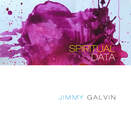
You are from Bristol, from an Irish background, and are a big part of the local scene there, having worked with many of the creative bands from the city (Clive Deamer who’s toured with Robert Plant /Radiohead and Angelo Bruschini, tour guitarist of Massive Attack for about two decades), tell us what makes Bristol special for musicians according to you?
I don’t feel part of it at all to be honest. I never did. Bristol’s music scene is a very small, tribal, one that holds no fascination for me whatsoever. Here it’s all about the beat and the bass its so clichéd and boring for me; I hate nightclubs! I don’t drink or take drugs. I am not part of any scene and technology is all I hear in most music from Bristol these days; and that’s anathema to me, it’s not saying anything.
You were invited to play live on BBC Radio 4’s LOOSE END show in 2018 (https://www.bbc.co.uk/programmes/b0bk1vrl ), and said about it: “it took me out of my comfort zone” playing live on the radio. That’s the title of my book about the Bristol scene! How did this experience help you evolve in the way you play live and the way you compose music?
Oh that was great, as it’s all done live so you have to deliver, as I said earlier, when it’s just you and a piano you better have something worthwhile to say as you can’t fake it at all. It felt amazing walking down Regent Street in London afterwards, sitting in a café watching the world pass by… I had lots and lots of album sales from iTunes the following week and lots of lovely emails from strangers saying how much they were moved by the music. It was a great affirmation.
How do you cope with the current lockdown? Do you plan to keep on playing and release some more recording online?
Yes for sure as an artist I have been self-isolating all of my life anyway! Personally, social distancing is really working for me… I am in work mode, always. I’ve got three new neo-classical albums. I’m composing one for strings with soprano voice. I have also been in talks with the Catholic Church as I want to do a show called THE BLOOD OF CHRIST, about the sexual abuse within the Catholic church, that will involve large-scale abstract paintings and music for a 30 piece string section. I’m also composing. I want this to happen in Bristol and Rome, but the coronavirus has put this on hold. I’m also in a great charity art show that will happen in London in the autumn – that was due to happen this March, again postponed due to the coronavirus, for an amazing charity “Arms Around the Child” that will also feature work from David Bryne (Talking Heads), Chrissie Hynde (The Pretenders), MM (Maxim/The Prodigy), Jamie Hewlett (Gorillaz), Mister Brainwash, etc. The show has been co-curated by Neneh Cherry.
Brilliant! Thank you very much Jimmy Galvin.
I don’t feel part of it at all to be honest. I never did. Bristol’s music scene is a very small, tribal, one that holds no fascination for me whatsoever. Here it’s all about the beat and the bass its so clichéd and boring for me; I hate nightclubs! I don’t drink or take drugs. I am not part of any scene and technology is all I hear in most music from Bristol these days; and that’s anathema to me, it’s not saying anything.
You were invited to play live on BBC Radio 4’s LOOSE END show in 2018 (https://www.bbc.co.uk/programmes/b0bk1vrl ), and said about it: “it took me out of my comfort zone” playing live on the radio. That’s the title of my book about the Bristol scene! How did this experience help you evolve in the way you play live and the way you compose music?
Oh that was great, as it’s all done live so you have to deliver, as I said earlier, when it’s just you and a piano you better have something worthwhile to say as you can’t fake it at all. It felt amazing walking down Regent Street in London afterwards, sitting in a café watching the world pass by… I had lots and lots of album sales from iTunes the following week and lots of lovely emails from strangers saying how much they were moved by the music. It was a great affirmation.
How do you cope with the current lockdown? Do you plan to keep on playing and release some more recording online?
Yes for sure as an artist I have been self-isolating all of my life anyway! Personally, social distancing is really working for me… I am in work mode, always. I’ve got three new neo-classical albums. I’m composing one for strings with soprano voice. I have also been in talks with the Catholic Church as I want to do a show called THE BLOOD OF CHRIST, about the sexual abuse within the Catholic church, that will involve large-scale abstract paintings and music for a 30 piece string section. I’m also composing. I want this to happen in Bristol and Rome, but the coronavirus has put this on hold. I’m also in a great charity art show that will happen in London in the autumn – that was due to happen this March, again postponed due to the coronavirus, for an amazing charity “Arms Around the Child” that will also feature work from David Bryne (Talking Heads), Chrissie Hynde (The Pretenders), MM (Maxim/The Prodigy), Jamie Hewlett (Gorillaz), Mister Brainwash, etc. The show has been co-curated by Neneh Cherry.
Brilliant! Thank you very much Jimmy Galvin.
Some Back Cat
About Melissa Chemam

Melissa Chemam is a freelance journalist, associate lecturer in journalism at UWE Bristol and author of the book Massive Attack - Out of the Comfort Zone (2019).
She has reported on migrations issues in East/Central Africa and Western Europe for the BBC World Service and other international broadcasters for many years.
We met through her book really, I arranged a phone interview with her because the subject looked amazing, a subject that has never really been written about before. The interview turned into a lovely conversation leading to a friendship and I'm honoured to have her contributing to Phacemag. Best pp
She has reported on migrations issues in East/Central Africa and Western Europe for the BBC World Service and other international broadcasters for many years.
We met through her book really, I arranged a phone interview with her because the subject looked amazing, a subject that has never really been written about before. The interview turned into a lovely conversation leading to a friendship and I'm honoured to have her contributing to Phacemag. Best pp
share
